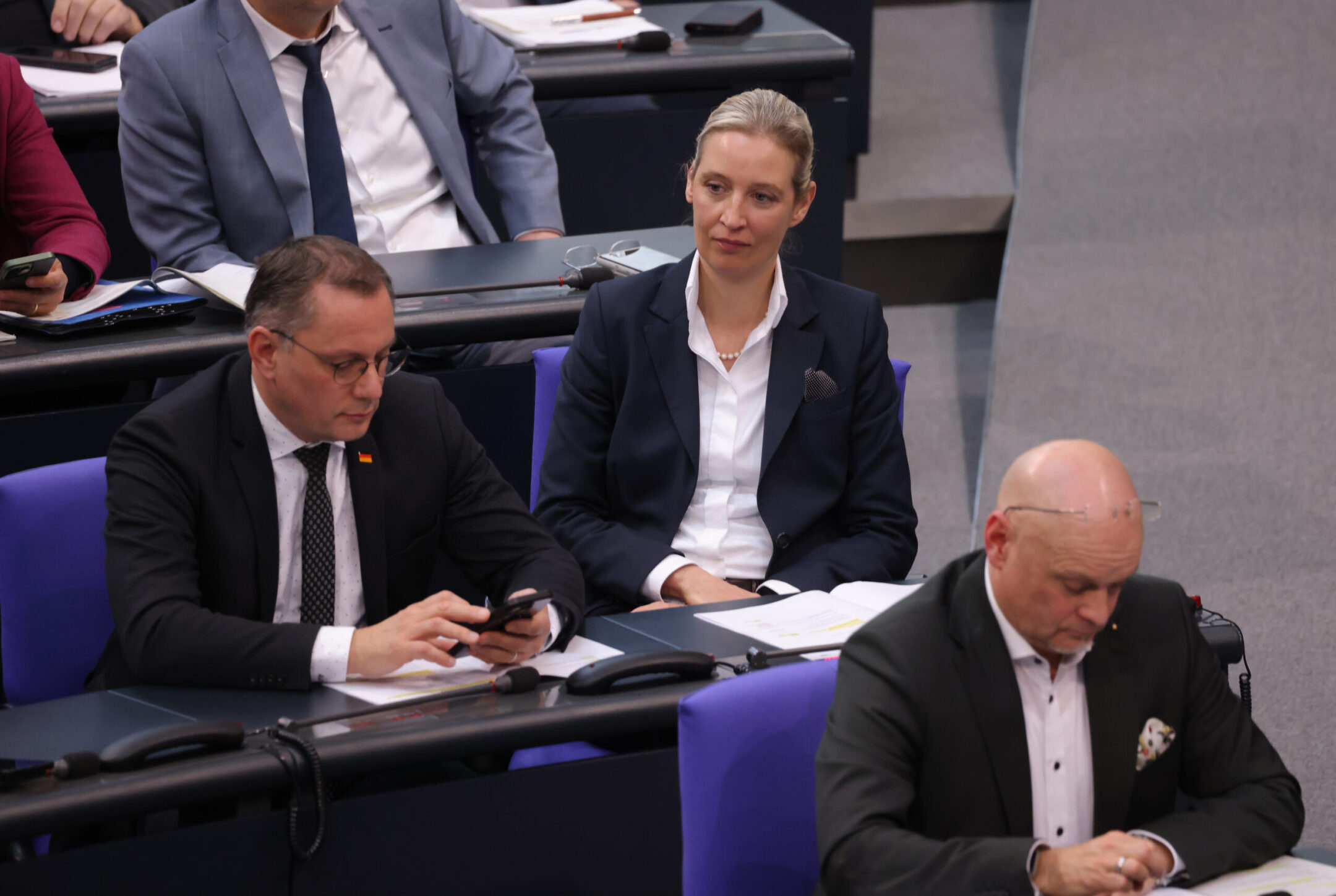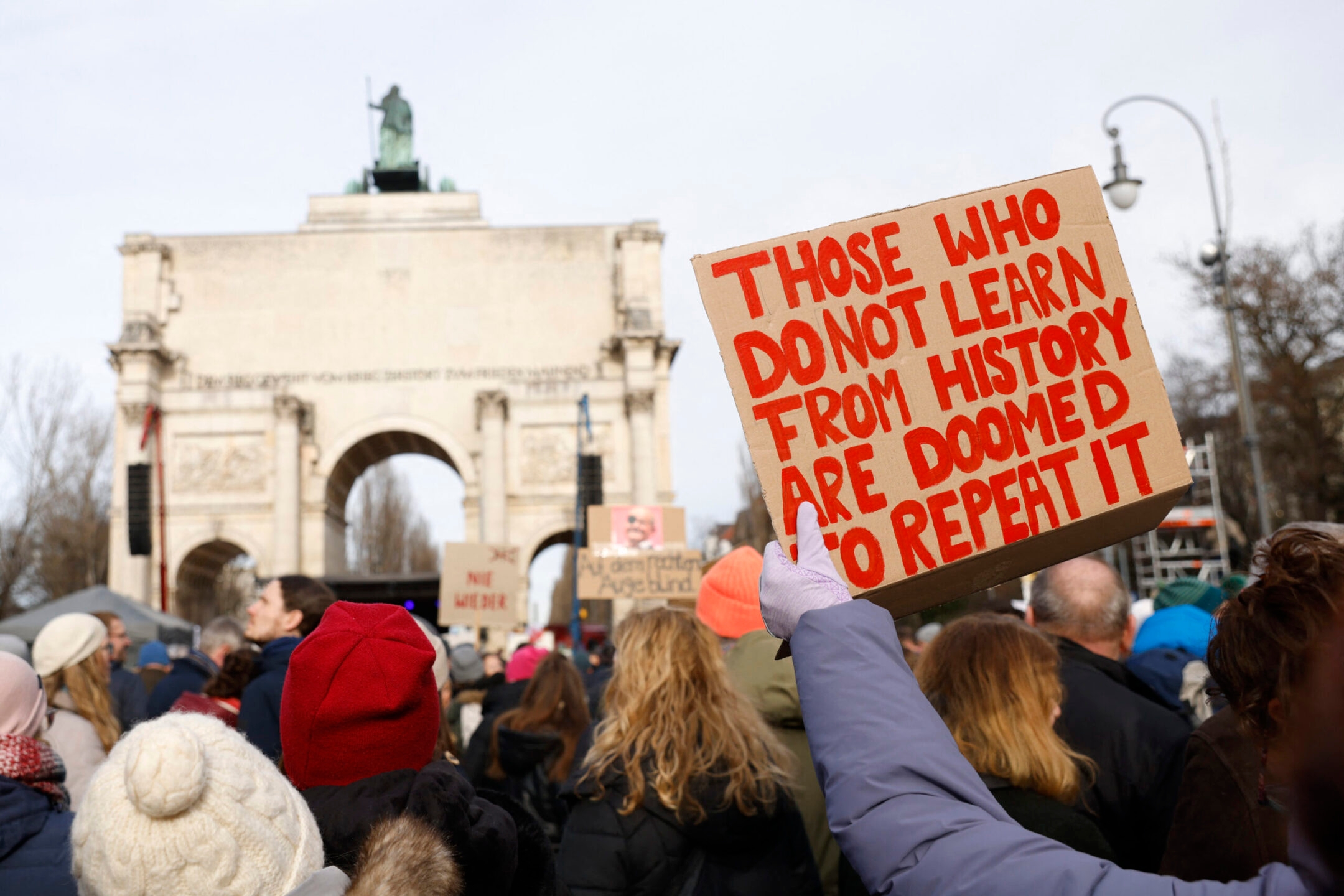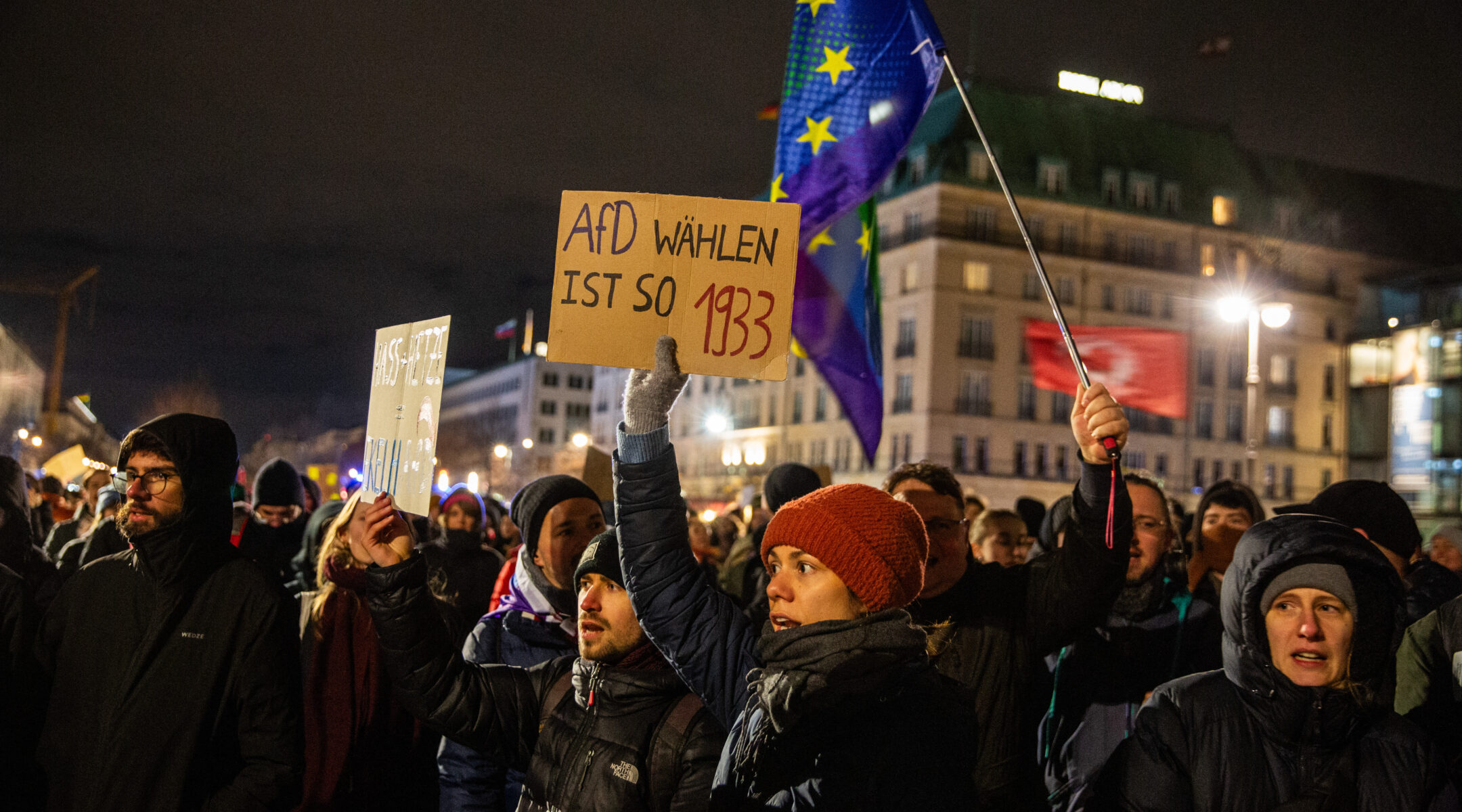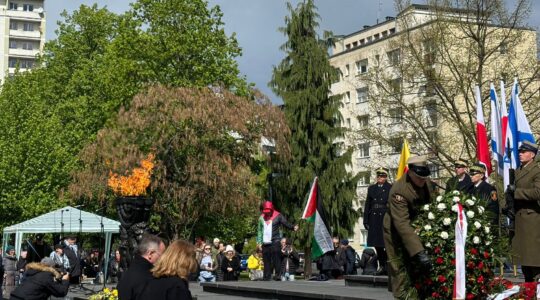BERLIN (JTA) — As many as 1 million Germans rallied this weekend against far-right extremism after a bombshell report revealed that leaders of a far-right party had secretly discussed plans to deport foreigners, including those who had become German citizens.
The meeting at a lakeside villa, revealed by a public-interest media organization, for many induced painful echoes of the gathering of Nazi leaders at nearby Wannsee in 1942 to devise a plan to deport and then murder Jews. Prominent neo-Nazis attended the November meeting, according to the investigation.
The revelations caused the country’s leading Jewish organization to reiterate its longstanding objections to the party, known as Alternative for Germany or AfD.
“Anyone who has ever wondered why the federal office for constitutional protection classifies AfD as a suspected right-wing extremist group now has an answer,” Josef Schuster, head of the Central Council of Jews in Germany, said in a statement. “This meeting shows what a great danger the AfD and its supporters pose to our free, democratic society and our peaceful coexistence.”
According to the report published by Correctiv, which describes itself as a pro-democracy, public interest media company, prominent right-wing extremists and a handful of mainstream right politicians met secretly to strategize over the deportation — or as they put it, “remigration” – of millions of foreigners and dual-citizens.

Alice Weidel (C) and Tino Chrupalla (L), co-leaders of the far-right Alternative for Germany (AfD) political party, attend a session at the Bundestag in Berlin, Jan. 17, 2024. (Sean Gallup/Getty Images)
Along with the influential AfD members who met in a 1920s-era hotel near Potsdam were neo-Nazis, among them Martin Sellner, former head of the far-right Identitarian movement in Austria; right-wing-oriented businesspeople, and two members of Germany’s center-right Christian Democratic Party, according to Correctiv.
The gist of the far-right plan, the report concluded, is that “people in Germany should be forcibly extradited if they have the wrong skin color, the wrong parents, or aren’t sufficiently ‘assimilated’ into German culture according to the standards of people like Sellner. Even if they have German citizenship.”
The plans drafted at the meeting amount to a “fierce attack on the German constitution,” providing “a sinister glimpse into what could happen should the AfD ever come to power,” the media organization said in its report.
AfD has tapped into nationalist and anti-immigrant sentiment in Germany to rise in the polls there, sometimes surpassing the popularity of mainstream right-wing parties. Although the party did not win enough votes to gain seats in the country’s parliament during the last national elections in 2020, an AfD candidate won a race for regional office for the first time last summer, in rural eastern Germany, and the party is expected to mount a strong showing there in upcoming regional elections next month.
The rallies, which took place in more than 100 cities and towns over several days, aimed to demonstrate that a significant portion of Germans reject AfD’s attitudes. “Fascism isn’t an alternative,” read signs carried by some rally-goers, who mobilized about a week after the first report of the party’s secret meeting to plot a strategy to combat Germany’s tolerance of immigration.
The meeting took place at a villa alongside Lake Lehnitz, about 30 miles from the villa where the Nazis’ Wannsee Conference to discuss the “final solution” — a euphemism for the genocide of European Jewry — took place in 1942.
“The vocabulary is no different, the place is no different — the only difference is that we have been there before,” said Andrea Römmele, a professor at a private Berlin university, told the New York Times.
Schuster rejected the Holocaust comparison, saying that “the industrial mass murder of European Jews is unique in history in its cold-bloodedness and madness.” But some rally-goers carried signs that directly tied the secret meeting to Germany’s mass murder of European Jews, including ones reading “Never again is now” and “Now we can see what we would have done in our grandparents’ position.”

A participant holds up a placard during a demonstration against racism and far-right politics in front of the Siegestor (Victory Gate) memorial arch in Munich, Germany, Jan. 21, 2024. (Michaela Stache/AFP via Getty Images)
AfD’s co-leader Alice Weidel called the Nazi comparisons “unreflective,” “excessive” and “a scandalous trivialization of Nazi crimes” – using terms that critics have used to describe statements by fellow AfD leaders, such as former party chief Alexander Gauland, who in 2018 called the Nazi-era a mere “bird s–t” in 1,000 years of German history.
Weidel criticized Correctiv’s methods, which reportedly included renting a boat to photograph the meeting from afar and obtaining footage recorded on a digital watch from inside the villa. (The organization also reportedly spoke to people who attended the meeting.)
But she did not deny that a meeting was held; that her personal advisor, former Bundestag member Roland Hartwig, was present alongside prominent right-wing extremists; or that a plan for expulsion of foreigners was discussed. Hartwig has been let go from his position “by mutual agreement.”
AfD draws strength from populist resentment against refugees arriving in Germany over the last decade from conflict zones in the Middle and Far East and Africa, and more recently against those fleeing Ukraine. Far-right activists have traditionally prescribed deportation of so-called foreigners as a solution for socioeconomic problems. And the AfD is known to take a Russia-apologetic, NATO-critical stance.
It is maintaining a second-place hold in national polls, running slightly behind the Christian Democratic Union. The centrist governing coalition has fallen to a distant third. Responding to the Correctiv report, Chancellor Olaf Scholz that any plan to expel immigrants or citizens would be “an attack against our democracy, and in turn, on all of us.”






